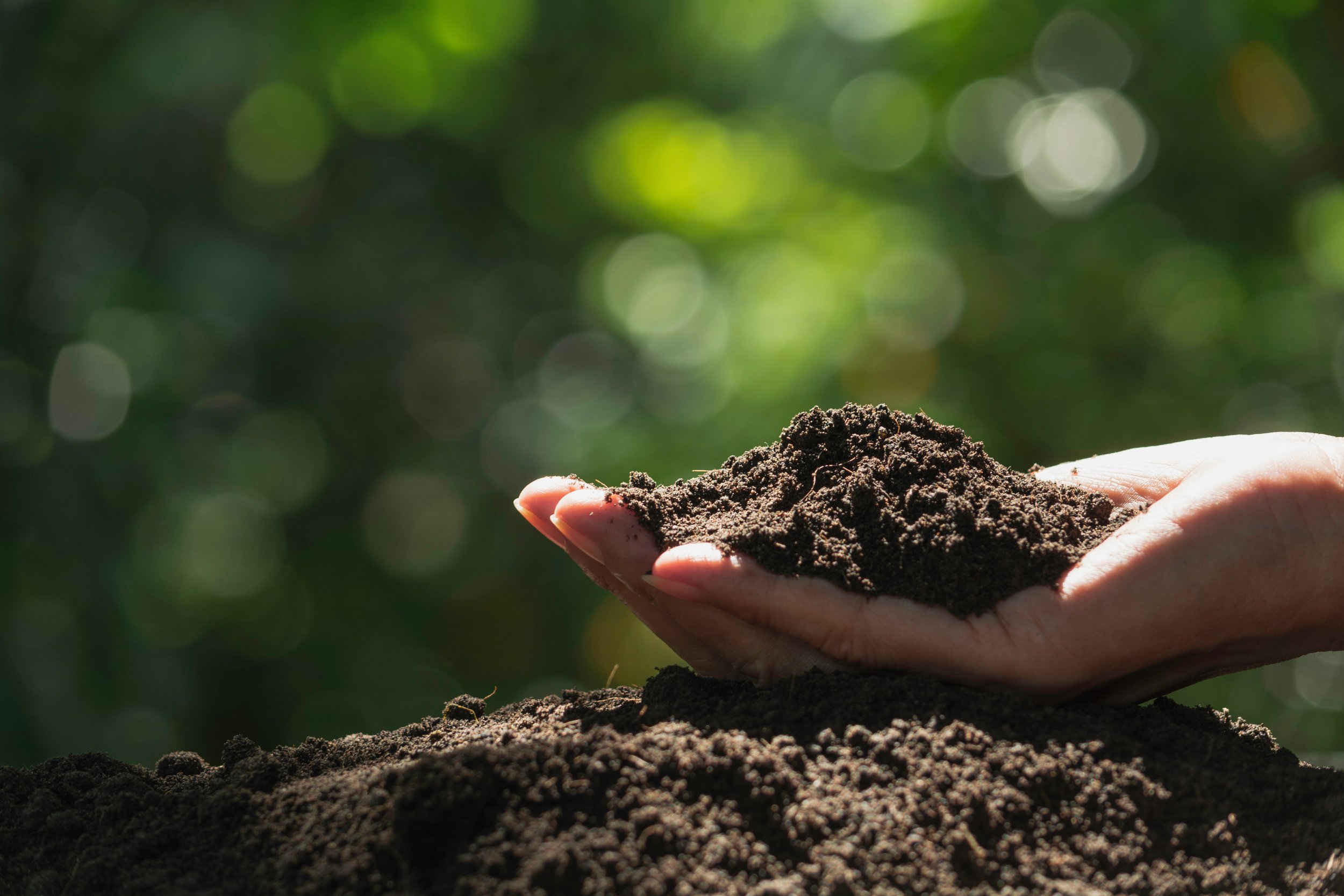Phytoremediation
Phytoremediation is an innovative and sustainable approach to environmental clean-up that uses plants to remove, degrade, or immobilize pollutants from the soil, water, or air. This natural process harnesses the power of plant roots, leaves, and stems to absorb and break down harmful substances like heavy metals, pesticides, solvents, and even radioactive compounds.
This technology offers a cost-effective and eco-friendly alternative to traditional methods of environmental remediation, such as excavation or chemical treatments. By using plants as natural filters, phytoremediation not only helps to clean up polluted areas but also improves soil quality, promotes biodiversity, and reduces the need for harmful chemical interventions.
Common plants used in phytoremediation include sunflowers, mustard greens, and various types of hemp—all of which can absorb and transform pollutants in the soil or water. This page will dive into how phytoremediation works, the types of pollutants it can address, and the promising role it plays in sustainable environmental management.
The Phytoremediation Process
During the process of absorbing water from the soil, plants can also absorb various contaminents as deep as their roots.
The Plant can then:
store these contaminents within its roots, stems and leaves
Convert them into less harmful chemicals
Have the contaminents in the roots broken down by microbes and converted into less harmful chemicals
The process can take several years to occur, however it utilises the plants natural process saving energy, equiptment and labor
Phytorememdiation also has additional envirionmental benefits as whilst it removes contaminents from the soil it also can control soil errosion and improve air quality.
There are Six main strategies of phytoremediation:
-
The roots absorb contaminents within the soil and allows them to accumilate above ground. This can then be periodically havested to remove them from the soil
-
Phytostabilization aims to reduce the mobility of heavy metals by establishing a plant cover on the surface of the contaminated sites
-
Plant roots enhance biodegradation by stimulate microbes within the soil to degrade organic contaminants.
-
Plants absorb contaminents through their roots and release them via their leaves into the atmosphere
-
Contaminents are absorbed in through the roots and metabolised either in the root, stem or leaves
-
The use of deep rooted trees to degrate contaminents in ground water
Hemp in Phytoremediation
Fast Growth and Deep Roots
Hemp is known for its rapidly growing, and deep root system allowing it to cover a larger area and remove contaminants from the soil.
Bioaccumilation
Hemp has the ability to absorm toxins, metals and contaminents in the soil through its roots and store them in its tissues making it highly effective for Phytoremediation
Biomass Production
Hemp produces high levels of Biomass which can be later harvested and processed following phytoremediation to further reduce contaminents
Adaptability
Hemp is highly adaptable in various environmental conditions making it suitable for phytoremediation projects in diverse regions.
These qualities ensure the efficient extraction of heavy metals from contaminated soil. Additionally, hemp’s high biomass presents numerous commercial opportunities post-harvest.
Growing Hemp In Contaminated Soil
Industrial hemp plants, can effectively grow in polymetallic contaminated soils whilst still producing biomass and seeds making it effective in phytomanagement. Some growth characteristics of the hemp cultivars in the more contaminated soil were stunted, however, the absence of toxic metals in the above ground organs shows the feasibility of cultivating industrial hemp on more contaminated sites
Contaminated biomass as an energy resource.
It has been recommended to integrate phytoremediation technologies with biomass energy valorisation to transform unproductive contaminated soils into revitalised and productive areas.
Evidence has suggested that anaerobic Digestion and/or incineration of contaminated biomass has proved to be the most energy efficient and environmentally sustainable systems
Accelerating Phytoremediation
Hemps Phytoremediation properties can be enhanced when in conjunction with the algae, spirulina to accelerate the process.
Research has identified selective compartmentalisation was enhanced when the hemp plant was irrigated with water containing spirulina, increasing the uptake of heavy metals in the plant. At higher concentrations, spirulina acted as a growth promoter, contributing to an increase in the final biomass
Further Studies have found that implanting fungi called arbuscular mycorrhizal fungi (AMF) into the Hemp plants can further enhance the process of phytoremediation. This is due to the AMF increasing plant biomass and the plant’s ability to absorb metals from the soil.





